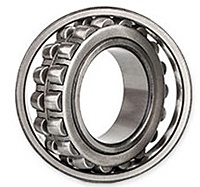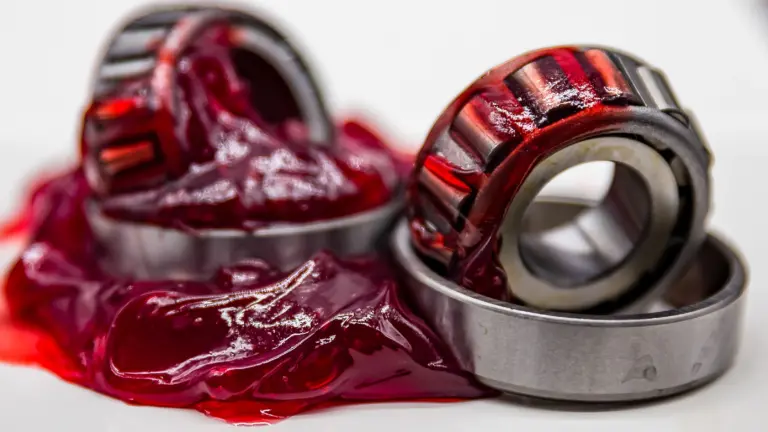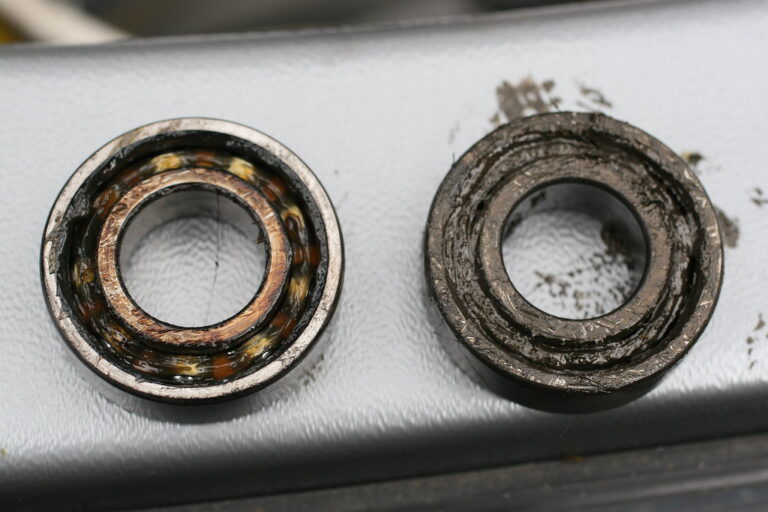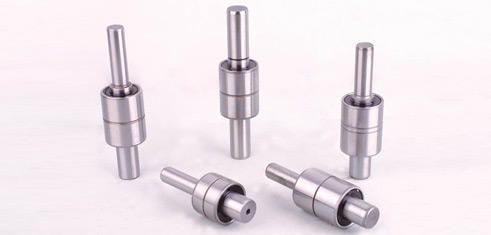What are the Common Causes of Bearing Failure?
Roller bearings are reliable and durable. Engineered to reliably carry loads, they operate with rolling elements, such as balls or rollers in a raceway. Even in the toughest conditions, more than 99% of rollerroller_bearings bearings reach their projected service life.
Corrosion, rusting, flaking, creeping, pitting, spalling, and skewing can all lead to bearing failure. Each of these issues is a result of one of the following preventable causes:
Environmental influences: Moisture, dust, media, dirt, and unwanted heat can contaminate bearings that aren’t properly sealed. Electrical currents and sparks may negatively impact an uninsulated bearing. Take proper protective precautions depending on your bearing’s environment by using a shaft grounding device.
Improper lubrication: If done correctly, lubrication enhances function and prolongs bearing service life. Contaminated lubricants, too much, too little, or mixed lubricants can all have adverse effects on the bearings. The state of optimal function between lubrications is known as the Grease Service Life. If lubrication is not reapplied when this time expires, the bearing can fail.
Operational stress and bearing selection: Changing applications over time may affect the reliability of your bearing. If the load becomes too high or too low, the bearings might fatigue or skid, respectively. Look out for warning signs of failure which include rising temperatures and unusual noises.
Mounting and installation of bearings. During the mounting process, it is crucial to use proper tools and heaters. Mounting pressure applied to the wrong ring can cause raceways and rolling elements to become dented, particularly with self-aligning bearings. A loose, tight, or misaligned fit can cause the preload weight to be skewed and the shaft to rotate or creep.
Users must be mindful of outside factors that could interfere with bearing performance and take precautions to prevent such problems.
How to Avoid Premature Bearing Failure
Bearing failure over time is unavoidable, but it is possible to minimize the negative impact on operations. Steps that can help prevent premature bearing failure include:
Selecting the correct bearing: Select a bearing size that matches the capacity requirements of your application.
Proper installation of the bearing: During the installation process, the proper tools should be used, and the bearing should be installed according to the manufacturer’s instructions. Once installed, it is essential to verify that all components are properly positioned and aligned.
Lubrication of the bearing as per manufacturer’s guidelines: To ensure the bearing performs as intended throughout its service life, lubrication must be applied according to guidelines. The right type and amount of lubricant are pertinent.
Knowing the cause of bearing failure makes it easier for industry professionals to implement appropriate measures to help prevent it.




